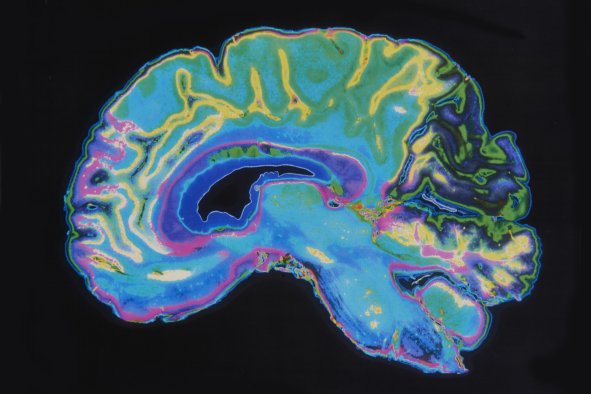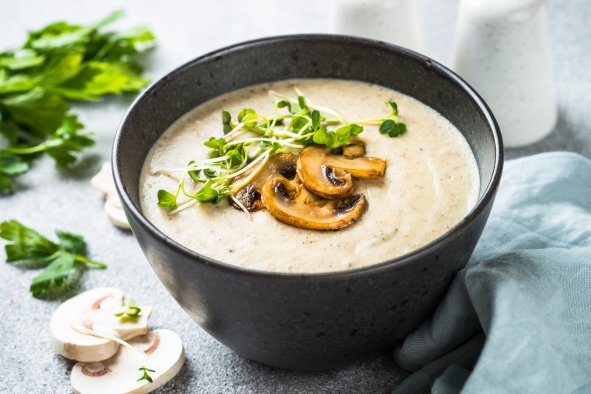Advice on how to avoid heart disease has stayed relatively the same for decades with one common recommendation being to avoid sources of saturated fat such as red meat—but Florida-based heart surgeon Dr. Philip Ovadia challenges this as a "misconception."
"The majority of what I eat, the basic framework that I construct what I'm eating around, is things from the animal world, mostly animal protein," Ovadia told Newsweek. "That's meats of all sorts, seafood as well, and then eggs and dairy products.
"That, I would say, for me, is more than 95 percent of what I eat on a day-to-day basis." He clarified that occasionally he might add some seasonings, onion or garlic to his meals, or even an avocado every now and then.
He said that some of his patients were surprised when he told them about his diet, or even recommended similar ways of eating.
"Coming from a heart surgeon, the biggest misconception...is that red meat is harmful for you, your heart health," said Ovadia.
Heart disease is the leading cause of death for people in the U.S., killing someone every 33 seconds, according to the Centers for Disease Control and Prevention.
The traditional view that foods high in saturated fat—such as red meat—elevate cholesterol levels, which leads to sticky plaques building up in blood vessels, blocking blood flow and leading to heart attacks and strokes.
The American Heart Association's website says: "Eating too much saturated fat can raise the level of LDL (bad) cholesterol in your blood. A high level of LDL cholesterol in your blood increases your risk of heart disease and stroke."
It recommends getting no more than 120 calories, out of approximately 2,000 per day, from saturated fat, equating to 13 grams or less.
The Centers for Disease Control and Prevention's website also says: "Eating lots of foods high in saturated fat and trans fat may contribute to heart disease."
But Ovadia told Newsweek that this was "simply not true" and based on "poor science that was misinterpreted and overpromoted."
"For most people, when they're talking about eating meat, it's in the context of a standard Western diet, which contains a lot of refined carbohydrates, a lot of processed foods. That is what is causing the harm—but the red meat took the blame."
Instead of cutting out red meat and other sources of saturated fat, he said: "A whole real food, low carbohydrate dietary approach is the best way to deal with insulin resistance and inflammation, which are the true root causes of heart disease."
Inflammation is a normal immune system response that can become chronic if it is constantly triggered by dietary or lifestyle factors, such as sugar and ultra-processed food.
Insulin resistance is a condition that is the precursor to diabetes. When we eat carbohydrates, the body turns this food into glucose, and the hormone insulin is released to take the glucose out of the bloodstream to be used as energy.
Individuals who eat a lot of sugar and refined carbohydrates—such as white bread, pasta, and rice—may develop insulin resistance, where the body gradually struggles to cope with high levels of glucose in the blood.
"Things like diabetes, things like cancer, high blood pressure, Alzheimer's disease—all of these things tie back to insulin resistance and inflammation," said Ovadia. "The carnivore diet in particular—but more broadly, low-carbohydrate diets—have now been demonstrated to be particularly effective at dealing with insulin resistance and improving or preventing inflammation.
"That's why I think they're so powerful when it comes to heart disease and these other chronic diseases."
Ovadia has two active medical practices: one which focuses on doing heart surgery for people with advanced heart disease, and another which helps people improve their diets.
"My main thing that I talk to people about is eliminating processed food, eating whole real food," he said. "Then I tell them that you don't have to fear red meat."
The most common heart surgery Ovadia performs is coronary artery bypass surgery, dealing with people that have advanced blockages in the arteries of the heart.
"What I tell [my patients] is the surgery, it will address the problem, right?" he said. "They're not getting enough blood flow to their heart, and the surgery deals with that, but the surgery doesn't change why they got the heart disease.
"If we don't address that, they're going to continue to have problems with heart disease throughout their life."
Do you have a tip on a food story that Newsweek should be covering? Is there a nutrition concern that's worrying you? Let us know via science@newsweek.com. We can ask experts for advice, and your story could be featured in Newsweek.
Disclaimer: The copyright of this article belongs to the original author. Reposting this article is solely for the purpose of information dissemination and does not constitute any investment advice. If there is any infringement, please contact us immediately. We will make corrections or deletions as necessary. Thank you.



